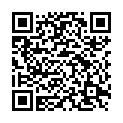|
|
|
| Module code: MBG21-18 |
|
|
2V+2S (4 hours per week) |
|
6 |
| Semester: 5 |
| Mandatory course: yes |
Language of instruction:
German |
Assessment:
Exam achievement
[updated 15.11.2021]
|
MBG21-18 (P311-0176) Management and Professional Pedagogy in Health Care, Bachelor, ASPO 01.10.2021
, semester 5, mandatory course
|
60 class hours (= 45 clock hours) over a 15-week period.
The total student study time is 180 hours (equivalent to 6 ECTS credits).
There are therefore 135 hours available for class preparation and follow-up work and exam preparation.
|
Recommended prerequisites (modules):
MBG21-1 Academic Methodologies and Study Skills I
MBG21-14 Vocational Pedagogy in Health Care III
MBG21-8 Vocational Pedagogy in Health Care II
[updated 12.10.2023]
|
Recommended as prerequisite for:
MBG21.B.51 Advanced Didactics and Methodology
MBG21.B.52 Developing a Curriculum
MBG21.B.53 Measuring and Assessing Competence
MBG21.B.54 Educational Guidance in (Vocational) Adult Education
MBG21.S.34 Nursing Care Counseling
[updated 04.12.2025]
|
Module coordinator:
Prof. Dr. Dagmar Renaud |
Lecturer:
Prof. Dr. Dagmar Renaud
[updated 12.10.2023]
|
Learning outcomes:
•Communication Theories
After successfully completing this module, students will have the following skills and competencies:
.
Knowledge and Comprehension:
• Students will be familiar with the theoretical foundations and models of human communication.
• They will possess conversation management techniques.
• They will understand the connection between verbal and non-verbal communication.
• They will understand how social interaction is constructed through communication.
• They will be familiar with the conditions and principles of successful communication.
The Use, Application, and Generation of Knowledge:
• Students will be able to efficiently use the mechanisms that underlie communication in their professional actions.
• They will be able to apply their knowledge in exemplary conversations.
• They will be able to use conversation techniques in different conversation models.
Communication and Cooperation:
• Students will be able to use communication techniques to design cooperative processes.
Scientific Self-Concept/Professionalism:
• Students will be able to reflect on their own communication behavior and adapt it appropriately to situations.
Conflict Management:
After successfully completing this module, students will have the following skills and competencies:
.
Knowledge and Comprehension:
• Students will be familiar with possible sources of interference in communication.
• Students will be familiar with the theoretical foundations for the emergence of conflicts.
• Students will understand the different effects of a message.
• Students will be able to recognize the causes of conflicts from unfavorable communication behavior.
The Use, Application, and Generation of Knowledge:
• Students will be able to use the meta-level to clarify disturbances in communication.
• They will be able to apply techniques of conversation management to avoid or resolve conflicts.
• They will be able to moderate conflicts in groups or teams in a solution-oriented manner.
Communication and Cooperation:
• Students will be able to reflect the different perspectives of conflict participants.
• They will be able to formulate solutions taking into account the interests of all parties involved in the discussion.
Scientific Self-Concept/Professionalism:
• Students will be able to reflect on sources of disruption in their own communication patterns.
[updated 15.11.2021]
|
Module content:
•Communication Theories
•General communication model
• Characteristics of communication
Social constructivist communication theories
Cognitive processes of processing social information
Communication models:
• Encoder/decoder models
• Intentional models
• Perspective-taking models
• Dialog models
Basic attitudes in conducting a conversation
Techniques for conducting a conversation
Exercises
Conflict Management:
Types of conflicts and their causes
Conflict models
•Conversation models (for example):
• Clarifying talk
• Expressing criticism
• Conflict discussion
Exercises
[updated 15.11.2021]
|
Teaching methods/Media:
Blended learning
[updated 15.11.2021]
|
Recommended or required reading:
Recommended literature will be announced at the beginning of the course.
[updated 15.11.2021]
|

